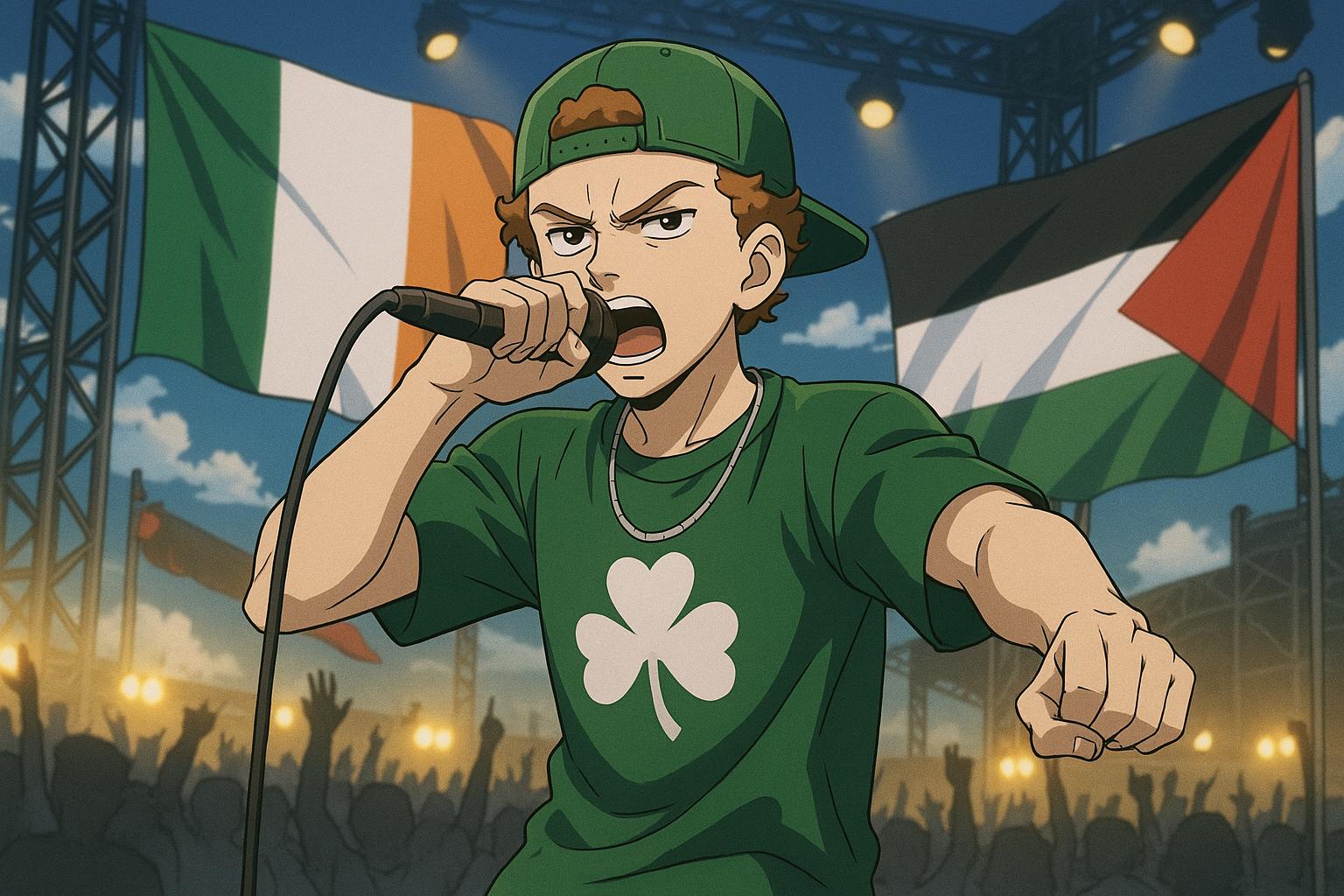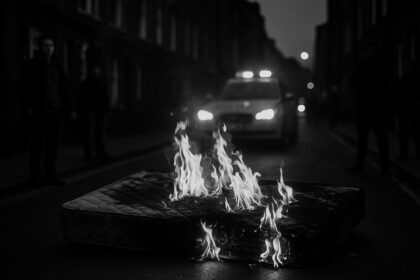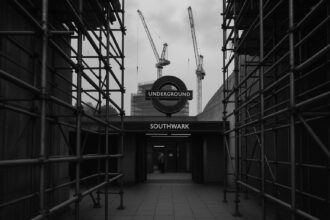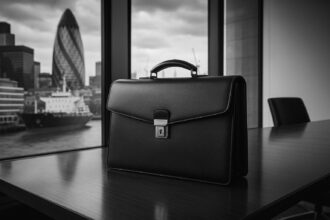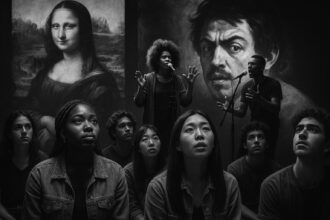Amid accusations linked to displaying Hezbollah symbols, Belfast’s Irish-language hip-hop trio Kneecap headlined the Wide Awake festival in Brixton, using the platform to voice solidarity with Gaza and challenge attempts at political censorship just weeks before Glastonbury.
Kneecap, the Irish-language hip-hop trio from Belfast, took to the stage on Friday night at the Wide Awake festival in Brixton, amid a wave of controversy following terrorism-related charges against one of its members. Liam Óg Ó hAnnaidh, known as Mo Chara, faces allegations of displaying a Hezbollah flag during a performance in November 2024, an act claimed by the Metropolitan Police to contravene the UK’s Terrorism Act. The charge carries potential penalties including imprisonment, but Kneecap has vigorously denied any wrongdoing, characterising the situation as “political policing” aimed at silencing dissenting voices, particularly regarding global injustices, including the ongoing situation in Gaza.
At Friday’s event, which marked the band’s biggest headline performance to date, Ó hAnnaidh addressed the crowd with pointed defiance, suggesting that authorities were attempting to stifle their message before their appearance at Glastonbury next month. “The world’s not listening. The world needs to see solidarity,” he urged, reflecting the band’s commitment to amplify politically charged messages amid escalating tensions in the Middle East. The backdrop of their performance was marked by the UN’s recent assessment that Gaza is experiencing its “cruellest phase” since conflicts escalated earlier this month, leading to staggering civilian casualties.
The festival attracted a dedicated fanbase, many of whom displayed Irish and Palestinian flags. This cultural intersection underscores Kneecap’s thematic preoccupations, weaving narratives around Irish identity and solidarity with the Palestinian cause. Myrtle, a fan from Brighton, underscored the gravity of the band’s messages, asserting the importance of historical accountability in the context of political activism. She remarked on the moral imperative to stand on “the right side of history” — a sentiment echoed by many supporters at the festival.
Friday’s gig built on a secret performance at London’s 100 Club just prior, which showcased a mix of tracks from their acclaimed album, Fine Art, and featured an unreleased song titled “The Recap.” The latter carries echoes of their recent legal troubles, opening with news audio about the counter-terrorism investigation. Critics of the band argue their rhetoric and actions incite violence, drawing scrutiny and calls for their exclusion from prestigious music events. Politicians, including Conservative leader Kemi Badenoch, have called for Kneecap to be banned from future performances, including the revered Glastonbury Festival.
However, the band continues to receive support from notable artists, like Massive Attack and Paul Weller, who frame the backlash as a draw towards moral panic over the provocative expressions of youth culture in music. Additionally, the band has found its streaming numbers surge amidst the controversy, suggesting that their political artistry resonates with a growing audience seeking dissenting voices in a landscape often dominated by compliance with mainstream narratives.
Kneecap’s lyricism often delves into themes of drugs, hedonism, and socio-political commentary, aiming to challenge the status quo whilst engaging young audiences in conversations about identity and representation. Yet, their approach has not been without consequences. Recently, videos surfaced that led to further scrutiny from counter-terrorism police, examining whether the band incited violence against MPs. While they have apologised to the families of murdered MPs for contextually misinterpreted statements, they firmly maintain their stance against being labelled as supporters of banned groups like Hamas and Hezbollah.
The implications of Kneecap’s struggles reveal a broader tension between artistic freedom and political expression in the UK. As they prepare for their upcoming court appearance, the band persists in articulating its viewpoints, aiming to spark a discourse on justice and representation in the political landscape. In a climate where public sentiment increasingly intersects with artistic expression, the ongoing saga of Kneecap may well serve as a flashpoint in debates surrounding freedom of speech and the role of art in activism.
As the festival culminated in rallying cries of solidarity for the Palestinian people, it became evident that Kneecap’s performances have evolved into more than mere musical expressions — they have transformed into platforms for potent socio-political dialogue, boldly challenging audiences to partake in the narratives unfolding both locally and globally.
Reference Map:
- Paragraph 1 – [1], [2]
- Paragraph 2 – [1], [3]
- Paragraph 3 – [4], [5]
- Paragraph 4 – [6], [7]
- Paragraph 5 – [2], [3]
- Paragraph 6 – [5], [6]
- Paragraph 7 – [2], [4]
- Paragraph 8 – [1], [4]
Source: Noah Wire Services
- https://www.bbc.com/news/articles/cz70lyqzeqeo – Please view link – unable to able to access data
- https://www.ft.com/content/b88745d2-d29b-4613-8632-fa763eb4f924 – Liam Óg Ó hAnnaidh, known as Mo Chara, a member of the Belfast-based Irish-language rap trio Kneecap, has been charged under the UK’s Terrorism Act 2000 for allegedly displaying a Hezbollah flag during a concert at London’s O2 Forum in November 2024. The charge carries a penalty of up to six months in prison and/or a fine. Kneecap denies the allegations, calling them ‘political policing’ and an attempt to silence artists critical of global injustices, particularly in Gaza. They emphasize their condemnation of all attacks on civilians and deny supporting Hamas or Hezbollah. The charge follows an investigation by the Metropolitan Police’s Counter Terrorism Command using audience-filmed footage.
- https://www.reuters.com/world/irish-band-kneecap-say-terrorism-charge-seeks-silence-artists-2025-05-22/ – Irish-language rap group Kneecap has condemned a terrorism-related charge against band member Liam O’Hanna as an attempt to silence politically outspoken artists. O’Hanna, 27, was charged by London’s Metropolitan Police for allegedly displaying a Hezbollah flag—representing the Iran-backed militant group banned in the UK—during a performance in November. Kneecap stated the flag was thrown on stage and denied endorsing Hezbollah or Hamas, emphasizing their condemnation of all attacks on civilians. The band, known for advocating Irish identity and Irish unity, has been scrutinized recently for pro-Palestinian messaging during their Coachella performance. In April, they also apologized for previously controversial comments perceived as encouraging violence against MPs. O’Hanna is scheduled to appear in court on June 18. Despite mounting criticism, including calls from UK lawmakers for their exclusion, Kneecap is still set to perform at the Glastonbury Festival in June.
- https://apnews.com/article/951643fa3345a152f86b59bbdcbd0a49 – Liam Óg Ó hAnnaidh, also known by his stage name Mo Chara and a member of the Irish hip-hop group Kneecap, has been charged by British police under the Terrorism Act for allegedly displaying a Hezbollah flag during a performance at London’s Kentish Town Forum on November 21, 2024. The charge comes amid a broader investigation into the group by counterterrorism authorities, following videos purportedly showing the band endorsing Hezbollah and Hamas and inciting violence against lawmakers. Kneecap has denied these allegations, claiming their remarks were misrepresented by political figures. The group, based in Belfast, is recognized for promoting Irish-language culture but is controversial for its provocative lyrics and political stances. The controversy has led to several concert cancellations and calls from politicians to drop the band from events, including the upcoming Glastonbury Festival. Kneecap garnered wider attention following the release of their gritty self-titled feature film, which premiered at the 2024 Sundance Film Festival and was shortlisted for Academy Awards but did not advance to the final nominations. Ó hAnnaidh is scheduled to appear in court on June 18, and police continue to investigate footage from a separate 2023 concert.
- https://en.wikipedia.org/wiki/Kneecap_%28band%29 – Kneecap is a Belfast-based Irish-language hip-hop trio known for their politically charged music and performances. The group is heavily associated with Irish republicanism, advocating for the reunification of Ireland and opposing British rule in Northern Ireland. They refer to themselves as ‘Republican Hoods’ and their fans as ‘Fenians’. Despite their republican themes, Kneecap states that republican paramilitaries would have given them punishment shootings (kneecappings) for some of the things they rap about. Their lyrics and imagery are also hostile to the police; in 2022 they commissioned a mural in Belfast of a burning Police Service of Northern Ireland (PSNI) vehicle. They promote greater use of and support for the Irish language in Northern Ireland. Kneecap says they are anti-sectarian and want to foster working-class solidarity among Catholics and Protestants in Northern Ireland. Mo Chara said, ‘It doesn’t matter who you are, where you’re from. Just because we rap in Irish and might not align with your political views — we can be friends with people that we don’t align with politically’. Móglaí Bap explained, ‘We’re political, but it’s very tongue-in-cheek. We wanted to take the seriousness and the sting out of it and incorporate elements of life that we as young people enjoy — like partying and taking Class A drugs. … We’re political with small p’s’. Referring to sectarian divisions in Belfast, he said that ‘The two communities in the [Catholic] Falls Road and [Protestant] Shankill suffer from a lot of the same problems — food banks, poverty, suicide … The wall, unfortunately, doesn’t stop these things going from one community to another.… I think a lot of politicians in the North would rather people focus on certain aspects of us to create division, but there’s a lot more that we have in common’.
- https://www.change.org/p/remove-kneecap-from-wide-awake-festival-lineup – A petition on Change.org calling for the removal of Kneecap from the Wide Awake Festival lineup. The petition argues that the band’s endorsement of Hamas and Hezbollah poses a significant problem for Jewish individuals and allies who feel horrified by Kneecap’s actions. It emphasizes that music and festivals are about togetherness and joy, and allowing Kneecap to perform at the festival sends the wrong message, inadvertently endorsing behaviors and views that many find deeply troubling. The petition has garnered over 1,000 signatures, urging the festival organizers to reconsider their decision and remove Kneecap from this year’s lineup to protect the inclusive spirit of Wide Awake and ensure it is a safe place for all.
- https://www.the-independent.com/arts-entertainment/music/news/kneecap-apology-show-mps-cancelled-b2743406.html – Several Kneecap shows have been cancelled as counter-terrorism police investigate footage which allegedly shows the band calling for the deaths of MPs and shouting ‘up Hamas, up Hezbollah’. Footage from November 2023 also appears to show one member of the group saying: ‘The only good Tory is a dead Tory. Kill your local MP.’ The group, from Belfast, apologised on Monday to the families of murdered MPs but claimed footage of the incident had been ‘exploited and weaponised’. Kneecap also said they have ‘never supported’ Hamas or Hezbollah, which are both banned organisations in the UK. After the video emerged, politicians are pushing for the group to be dropped from the Glastonbury Festival line-up. Artists including Pulp, Paul Weller, DJ Annie Mac, Massive Attack, and Primal Scream have meanwhile defended the band. Several venues have also reacted by cancelling Kneecap shows planned later this year.


